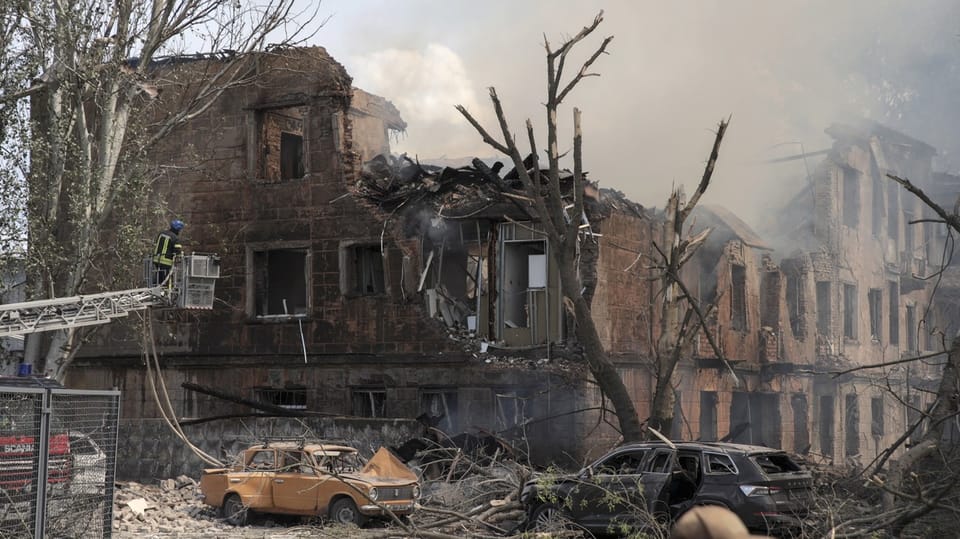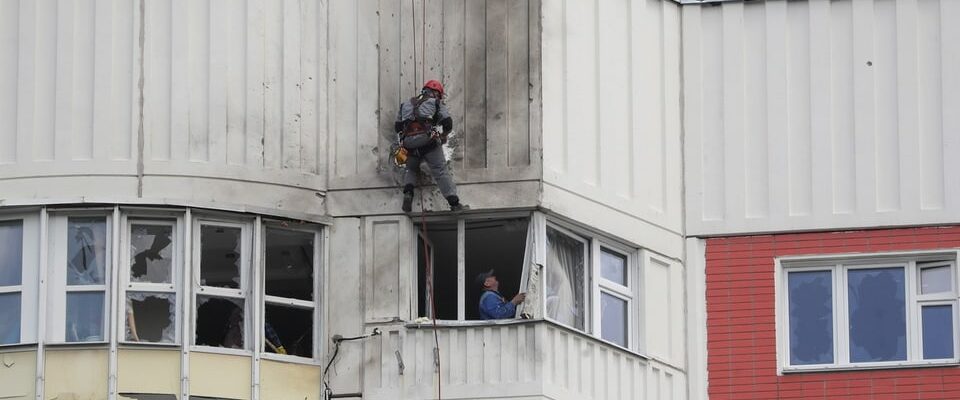Contents
The Kremlin fended off a drone attack in the Russian capital and blamed it on Kiev. The most important answers.
For months, Russia has been bombing Ukraine on a large scale, targeting the critical infrastructure. For human rights organizations and international law experts these attacks are war crimes. Recently there have also been isolated attacks on Russia. The Kremlin reported that there was a drone attack on Moscow on Tuesday morning.
What happened? Sergei Sobyanin is the mayor of Moscow. According to him, drones caused “minor damage” to several buildings. Two people were slightly injured. SRF Russia correspondent Christof Franzen says: “The Russian Foreign Ministry speaks of a total of eight drones.” However, all of them were hit or distracted. “The distracted drones fell on several residential buildings,” said Franzen. Meanwhile, Russian media are reporting about 25 drones.
Legend:
The damage in Moscow was limited.
EPA/MAXIM SHIPENKOV
What do the two warring parties say? The Russian government blames Ukraine for the attacks. This denies this. “Of course we are not directly involved,” said the adviser to the presidential office in Kiev, Mikhailo Podoliak. What is ultimately true cannot be clarified at the moment.
Has the Russian defense failed? Not if the Kremlin has its way. Russian Defense Minister Sergei Shoigu praised its anti-aircraft defenses. According to Franzen, Vladimir Putin was not quite as convinced; the air defense in Moscow “basically worked, but there is room for improvement,” said the Russian President. The Russian military expert Yuri Fyodorov posed a question that Franzen found interesting: “Obviously the flying objects flew over hundreds of kilometers of Russian territory. But what about the area between the Ukrainian border and Moscow? Is this area unprotected?”
Can Ukraine even attack Russian territory? Basically yes. That’s what Astrid Epiney says. The international law professor at the University of Freiburg explains: “In a war it is possible to attack targets that are on the enemy’s territory.” This means: If the Ukrainian army – or units that are subordinate to the Ukrainian state – attacks Russia on its territory, this does not in and of itself have to be a violation of international law.
In a war, it is possible to attack targets that are on enemy territory.
However, international humanitarian law also applies here. From this it emerges: “The parties involved in the conflict are allowed to carry out their acts of war directed only against military targets.” Epiney also says that attacks on civilian buildings always constitute a violation of international law – unless the infrastructure is used for military purposes.
What would be legitimate war aims? Any targets that would end or weaken the attack; such as “military airfields, barracks or training places for military personnel,” says international law professor Oliver Diggelmann from the University of Zurich.

Legend:
Just days before the drone attack on Moscow, the Russian army bombed a clinic in the southeastern city of Dnipro. At least two people died and around 23 were injured. International humanitarian law prohibits attacks on hospitals.
EPA/DMYTRO FEDORIV
He also emphasizes: “In this specific case, since Russia not only claims a border region of Ukraine, but also questions its existence in general, it would also be proportionate for Ukrainian troops to penetrate far into Russia.” This would serve the goal of “weakening Russia’s combat power in depth” and thus repel the attack on their own country.
